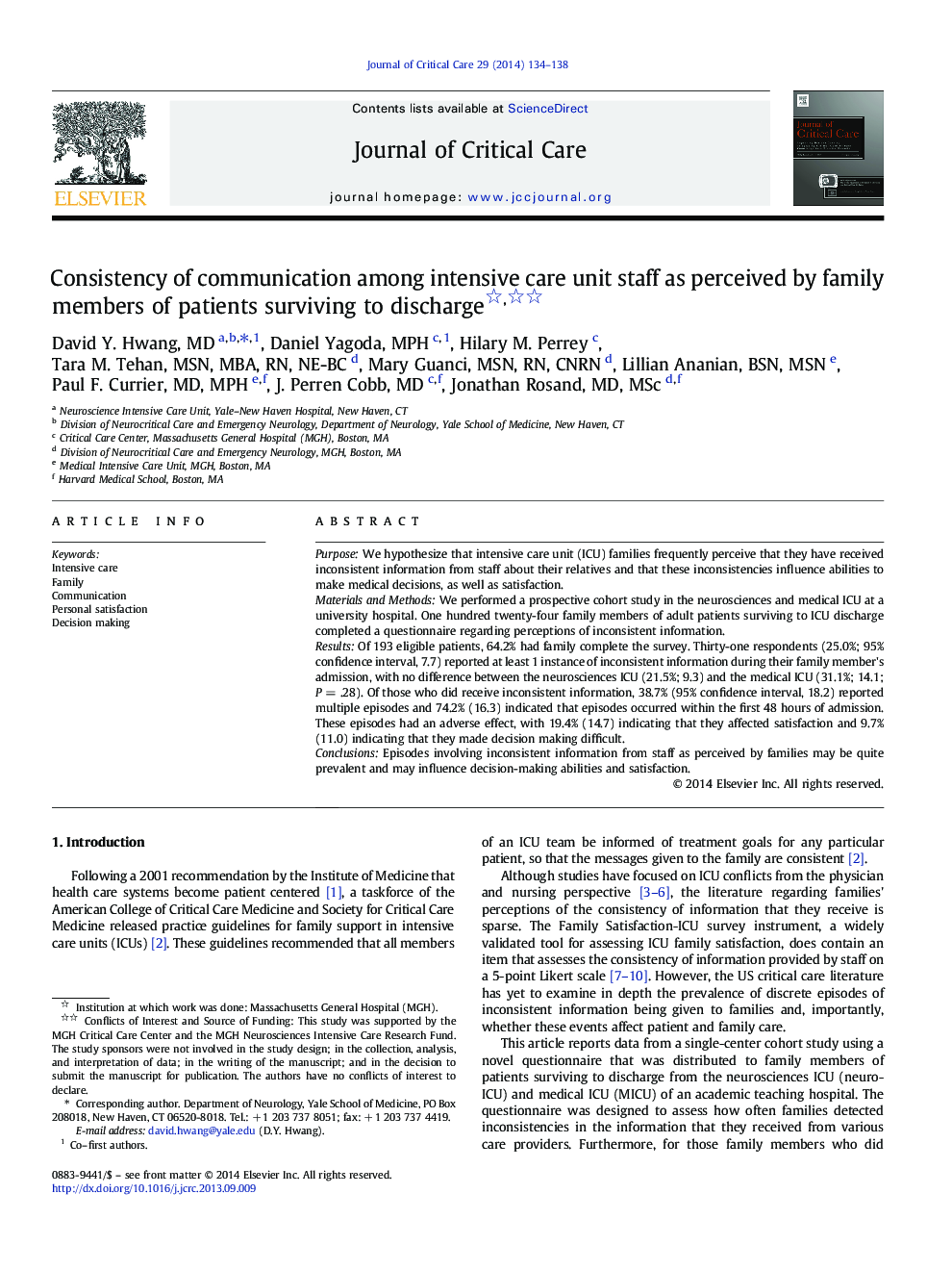| Article ID | Journal | Published Year | Pages | File Type |
|---|---|---|---|---|
| 2764668 | Journal of Critical Care | 2014 | 5 Pages |
PurposeWe hypothesize that intensive care unit (ICU) families frequently perceive that they have received inconsistent information from staff about their relatives and that these inconsistencies influence abilities to make medical decisions, as well as satisfaction.Materials and MethodsWe performed a prospective cohort study in the neurosciences and medical ICU at a university hospital. One hundred twenty-four family members of adult patients surviving to ICU discharge completed a questionnaire regarding perceptions of inconsistent information.ResultsOf 193 eligible patients, 64.2% had family complete the survey. Thirty-one respondents (25.0%; 95% confidence interval, 7.7) reported at least 1 instance of inconsistent information during their family member's admission, with no difference between the neurosciences ICU (21.5%; 9.3) and the medical ICU (31.1%; 14.1; P = .28). Of those who did receive inconsistent information, 38.7% (95% confidence interval, 18.2) reported multiple episodes and 74.2% (16.3) indicated that episodes occurred within the first 48 hours of admission. These episodes had an adverse effect, with 19.4% (14.7) indicating that they affected satisfaction and 9.7% (11.0) indicating that they made decision making difficult.ConclusionsEpisodes involving inconsistent information from staff as perceived by families may be quite prevalent and may influence decision-making abilities and satisfaction.
